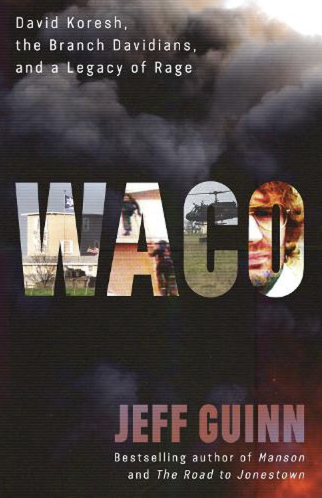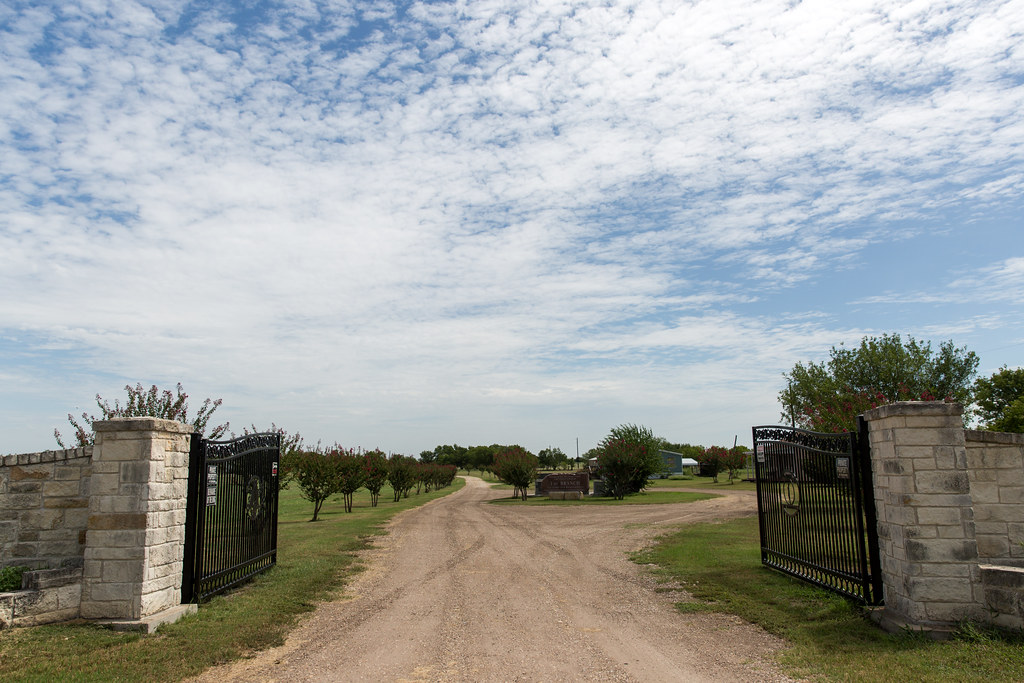Review: Waco: David Koresh, the Branch Davidians and a Legacy of Rage, Jeff Guinn, Simon & Schuster
Vernon Howell, the man who later called himself David Koresh and became infamous for the 1993 disastrous raid on his Texas cult, initially seemed weird even to the Branch Davidians, a radical offshoot of the Seventh Day Adventist Church. He had a difficult childhood but attended an Adventist church, where, despite learning difficulties, he seems to have memorised most of the Bible. He was especially interested in modern-day prophecy and was drawn to the Davidians in Waco. Soon he found favour with their leader, Lois Roden, and became intimately involved with her, despite their 40-year age difference. After she died and Vernon was banished for a time, he eventually took over, transformed into a confident preacher and calling himself Koresh, the Hebrew name for the Bible’s King Cyrus.
Koresh dreamt of rock stardom and alternated preaching to his flock of a hundred or so with attempts at finding a record contract in Los Angeles. His Bible studies were often focussed on the Book of Revelation, and he began preaching that he was the Lamb, and that the group should prepare for the coming Armageddon. He also told his mesmerised flock that it was God’s will that he should have multiple wives, which eventually included underage girls and the wives of men within the Davidian group. His followers built a large, two-storey, communally residential complex at Mount Carmel. To make money, the group became gun dealers, often selling to end-of-the-world preppers, and illegally converted guns to fully automatic, while stockpiling a vast arsenal for what they correctly believed was a coming crackdown by authorities, who weren’t exactly pleased with the underage wives and the illegal weapons.

The Bureau of Alcohol, Tobacco and Firearms (ATF) planned a raid relying on the element of surprise: when the men were outside working, the ATF would spring and separate them from their cache of guns. But the community became aware of the raid and when the ATF agents arrived at the Davidian compound, they were met by a barrage of gunfire, initiating a two-hour battle. There were fatalities on both sides. Then there was a standoff involving the FBI, for a remarkable 51 days. (In his account of the siege, Jeff Guinn says the FBI was used to sieges that lasted for an average of eight hours.)
The FBI negotiated for a surrender, but a wounded Koresh reneged repeatedly, while feverishly dictating his interpretation of Revelation and his part in it, which he thought for some reason would delay proceedings. On the final day of the siege, the FBI rang the compound to tell leaders they would be firing in tear gas in an attempt to drive the Davidians out. FBI tanks punched holes in the walls and were immediately fired upon. The tanks then began knocking down parts of the building, including the weapons room where women and children were hiding, killing them. There are several theories as to how a fire then started, but the sprawling building was a ‘tinderbox’, and it was quickly engulfed. Nine escaped but over 80 died, including women, children and Koresh himself. And it was broadcast live on TV.
In the story Guinn tells, there is fault on both sides, as well as uncertainty over key facts, such as who fired first. The ATF were unprepared. The Davidians, rather than just harmless weirdos, were armed to the teeth and radicalised to the point of martyrdom. (Some of the nine survivors were still waiting for Koresh’s resurrection decades later.) Koresh was duplicitous. The FBI became impatient and didn’t understand that Koresh saw everything through a biblical lens, and that therefore negotiations were being conducted in mutually incomprehensible languages. A couple of biblical scholars tried to inform the FBI that Koresh was more than just a con artist, one of them saying that he had never known someone as knowledgeable about the Bible, even if Koresh’s interpretations were dangerously self-centred. And the massed FBI army seemed simply to confirm Koresh’s prophecies.
The Branch Davidians are an example of how religion can become overridden by manipulative personalities and radicalised. There can be a temptation to think that the Bible, especially Revelation, is speaking directly of the experiences within the present historical moment of a spiritually privileged but persecuted group. The Davidians were prepared to go through hell for the reward of Heaven, convinced that the world was ending, that the powers of darkness were descending on them, and that their leader would glorify them in the next world. But this could also describe the early church. This is what made the situation so dangerous. Koresh was able to pull the wool over their eyes so that Scripture seemed to be fulfilled in their hearing. But it seems that he believed what he told them about his exalted position in their apocalyptic and tragic story.
What occurred at Waco may be an example of the dangers of religious cults, but Guinn writes that the tragedy has also taken on a strange and important aftermath, different to the likes of the Jim Jones cult in Guyana. The Waco siege fed the ‘rage’ and terrorist act of Timothy McVeigh, who, two years after Waco, bombed an Oklahoma government building that contained offices of the ATF as a reprisal, killing 168 people, as well as being an example to all manner of paranoid American paramilitary groups, conspiracy theorists and Trump supporters of the intention of government to infringe on what they perceive as their liberty, especially where gun ownership is concerned. Tragedy builds upon tragedy.
Nick Mattiske blogs on books at coburgreviewofbooks.wordpress.com and is the illustrator of Thoughts That Feel So Big.













